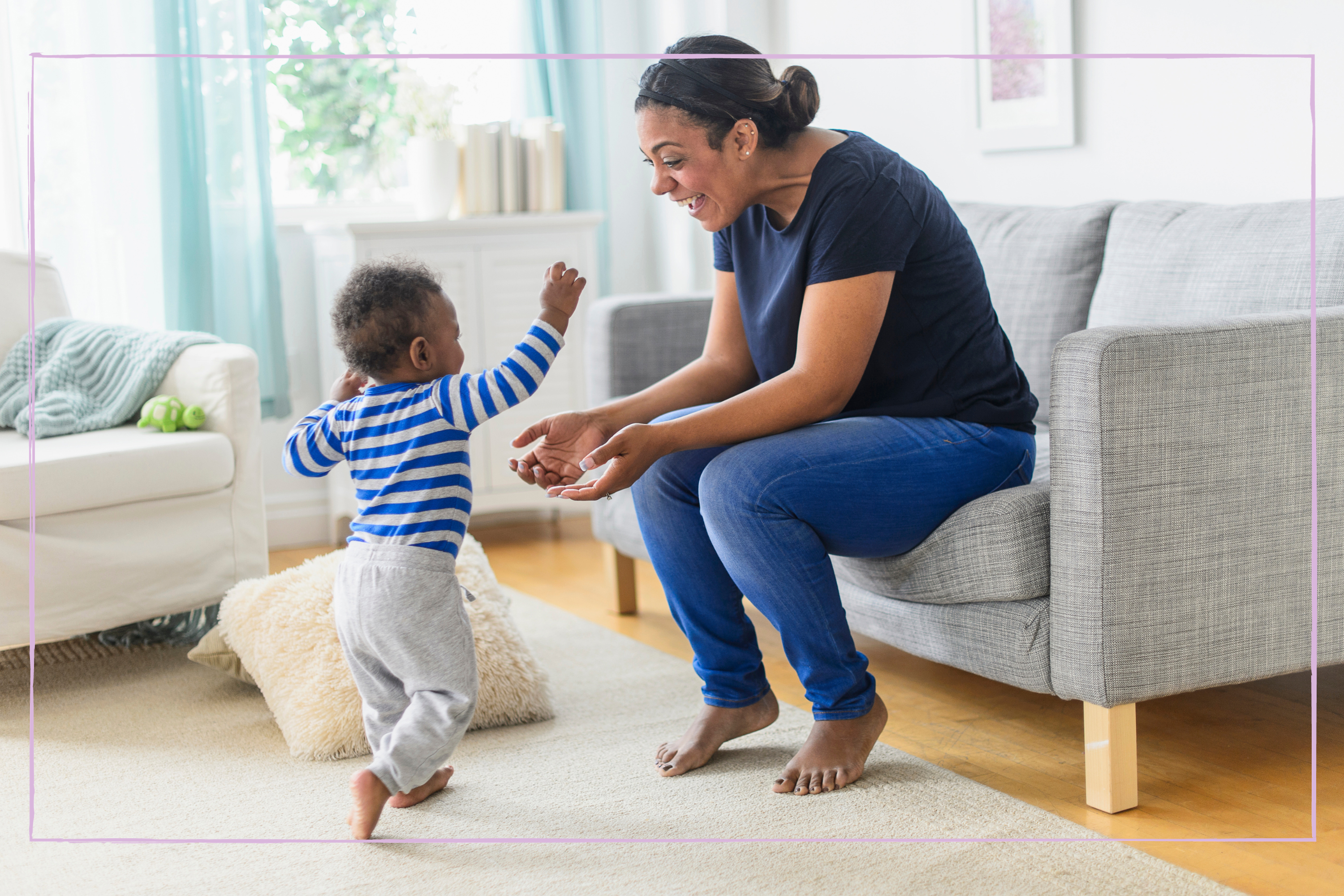
If there’s one thing I love about TikTok, it’s the sheer amount of helpful advice on there – especially when it comes to parenting.
Benign neglect and celebrating small wins, as well as the rise of the 'boy mom' trend influenced the parenting landscape in 2023. But now we're entering a new year, some new ways are popping up to make raising kids just a little easier. Now, you of course don't need to follow these trends – they might just come in handy for some inspiration this year. From screen time tokens to developmental wins, here are four parenting trends we’re embracing this year.
1. Celebrate developmental wins
Heavy hitters such as birthdays and Christmases are, generally, the biggest occasions for families to throw a party or eat cake but rather, parents will be entering their inchstones era in 2024. Your child will go through plenty of emotional and physical changes, particularly between the ages of one to five, and so the next time they pull themselves up unaided or hold small objects between their thumb and forefinger (known as the pincer grip, FYI), know that these micro moments are too worth celebrating.
Cbeebies presenter Nigel Clarke documents his relatable experiences with raising kids on TikTok and agrees that the biggest doesn’t always mean the best. When his son said ‘Dada’ for the first time, he found that acknowledging this moment had a really positive impact: “It’s important for their development, for them to understand and explore more,” he said. “Us celebrating what he was doing pushed him down an exploration route. It pushed him down a thought route. It pushed him down a development route.”
@nigelclarketv ♬ vlog, chill out, calm daily life(1370843) - SUNNY HOOD STUDIO
2. Cut off the tips of dummies
Want to say goodbye to the dummy for good in 2024? Try this hack out for size. The ‘cutting method’ is what it says on the tin. Take your child’s dummy and cut the tip off which creates a hole in the silicone. When you next give them their dummy, they’ll realise that the suction is broken and (hopefully) lose interest and discard it altogether.
This worked for TV personality and mother-of-one Louise Thompson like a dream. When she cut the tip off her child's dummy, he caught on that it wasn't working like it should, so she carried him over to the bin and even encouraged him to throw it away himself. It’s a perfect method if you’re too nervous for the potential fallout of going cold turkey.
3. School open days aren't just for parents
It sounds obvious, but when choosing a new school for your child, bring them along so you can gauge their reaction in real time – and also help them be involved in the decision-making process. Chef Martyn (@lagochef on TikTok) involves his son in a lot of his videos, and when he was looking around a new potential school for him, he noticed a lot of other parents didn’t bring their toddlers along. Martyn said: “If we walked by ourselves and looked at it, we wouldn’t know how he would feel. So we bring him to every open day. Invest your energy in your child and let your child guide what they want to do in the early parts of their life, because they know what they want to do.”
4. Consider screen time tokens
While using tablets and phones isn’t always a bad thing for kids, we know too much screen time is a challenge among parents. Nanny Aimes on TikTok provides parenting support and often comments on smartphone use among children. A few of her hacks include: no screen time until we [children] have washed, brushed teeth and got dressed, time outdoors every day and screen time as a standalone activity.
@nannyamies ♬ original sound - Nanny Amies Parenting Support
Screen time tokens are also a useful way to regulate and manage screen time effectively, teaching children the value of moderation and balance. Stephanie Lowe, GoodtoKnow’s Family Editor, is giving them a try. She said: "My six-year-old loves his tablet but I noticed that his behaviour falls off a cliff and his sass skyrockets if he's been on it for more than an hour. So, I've just ordered screen time tokens to give him some autonomy over it. The gist is, as a parent I choose how long he gets a day on his tablet or screens, as a kid he gets to choose how he spends that time. I'll talk with him and agree on rules around them, so he feels included in the decisions - our family is a democracy after all. Then, I'll leave the screen time tokens next to the TV and a wind-up timer. He chooses which token hands it to a parent, sets his timer, and then turns the screen off when the timer sounds. On paper this sounds easy, right? It won't be easy the first few times, and you might have to help them to turn it off, but don't let that stop you, you're helping your kids build up resilience each time you have to help them. After all these screens are designed to be addictive."







